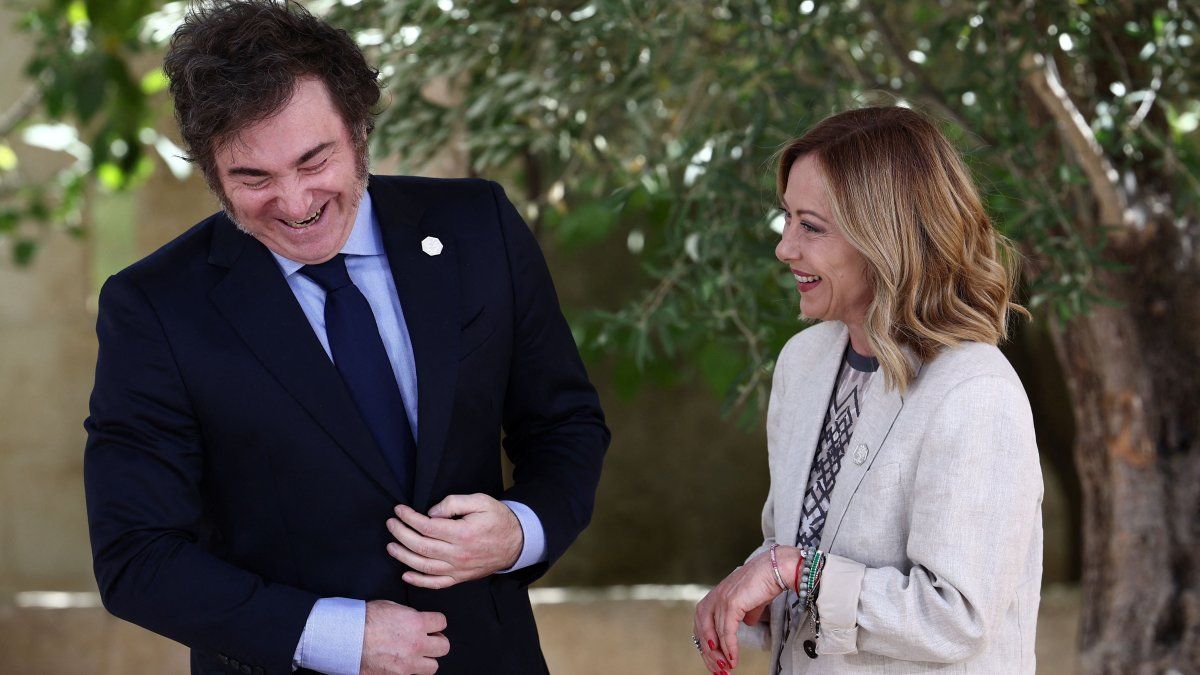We have always heard that Foreign policy is the deployment of politics in its highest version. For, above all, two arguments. The first of them because it is a symptom of the wishes of a government. It is the broad stroke that is enough to define where whoever leads the State wants to take that nation. The second argument, which complements the first, refers to the defense of national interest. The question we ask ourselves six months after taking office based on these two elements is: What is happening with foreign policy in the country of Milei?
I have been insisting that Argentina’s way of relating to the world cannot be explained without linking it to Milei’s personality. Her recurrent mistreatment and attacks on other heads of state or countries have already been the subject of many analyses. The succession of private trips, without a State agenda, it has become a custom. An exercise of “private diplomacy” tending to find personal validation and self-celebration has led to confusing the interest of the Argentine Republic with the personal interest of Javier Milei. To the point that public financing of his travels is questioned. This caused the government to make the decision to transfer the Investment Agency (Export Foundation) within the scope of the General Secretariat of the Presidency to pay for these “tours” without control.
Continuing with those thick lines, which in the Milei case presents a blurred border between public and privatewe find an unprecedented ultra-alignment (hyper-westernism) with United States and Israel that we link it to his religious dogmatism – he even flew the Israeli flag – or his political fundamentalism against a invisible enemy (because it does not exist): communism. This makes him get involved in extra-regional conflicts as in the case of Ukraine or Gaza that end up affecting one’s own interest in other fields and even national security. It all sounds quite far-fetched but it is real.
A fact that forcefully describes the madness of Milei’s foreign policy is the complaint by the UN High Commissioner for Human Rights that describes the risk of violation of rights in Argentina with the closure of institutions to protect women, access to justice, or attacks on the right of assembly or freedom of expression. Added to this is Argentina’s unusual withdrawal from Agenda 2030 events. For those who do not know, Agenda 2030 is a global work program approved by 193 heads of state with 17 objectives and 169 universal goals on economic, social and environmental issues. . It ranges from combating poverty and hunger, through access to education, health, infrastructure, industry, reduction of inequalities, to peace and climate change. Well, Mondino’s order was to get out of there. Medieval flat earthenism in its purest form.
The bonus track is the recent questioning of the World Health Organization and the refusal to sign a treaty on pandemics, or the presentation before the UN Decolonization Committee for Malvinas which is done annually and is supported by the countries that the government insists on attacking, such as what happened with the league of Arab countries or the countries in the region that sponsor us and are permanently ignored. It is paradoxical that while we asked in NY to the UN to be summoned to United Kingdom to dialogue, at the same time in Geneva the same UN challenged us because of the risk that human rights face here and the withdrawal of the 2030 Agenda. The error and damage caused by the BRICS exitnot only in geopolitical and commercial terms but also for its support in the Malvinas cause.
Faced with the description of all these facts, then let’s define: What is the national interest? It is, broadly speaking, a combination of values with attributes – in this case – of the Argentine Nation. Values such as peace and prosperity; order, harmony and regional stability; not getting involved in conflicts outside the region, knowing how to identify the interests at stake and that many times a decision in one area impacts another: for example, an alignment or position on an issue can have consequences on the Malvinas cause or on trade.
To these values, Argentina also historically added the defense of multilateralism, which is respect for decisions within the framework of the concert of nations and the commitment to political and commercial ties with the world; the importance of the region for its economic, political, social and cultural development; the Malvinas issue as one of the pillars, as well as the defense and promotion of human rights.
After this brief analysis of the Milei foreign policy They will have concluded that the government’s wishes are far from the defense of a permanent national interest. Everything is spasmodic and with the objective of personally positioning the president. That was achieved. Today he is a very particular reference for the extreme right. The only anti-national and (neo)liberal since In that “club” everyone is protectionist and nationalist. A path in the matter that has transcended governments has been destroyed, strategic priorities have been set aside and positions have been taken that leave Argentina in a place that will take a lot of work to reverse in the future. Today foreign policy turns its back on the true national interest.
Guillermo Justo Chaves was Chief of Staff of the Argentine Foreign Ministry.
Source: Ambito
David William is a talented author who has made a name for himself in the world of writing. He is a professional author who writes on a wide range of topics, from general interest to opinion news. David is currently working as a writer at 24 hours worlds where he brings his unique perspective and in-depth research to his articles, making them both informative and engaging.




